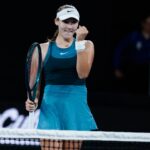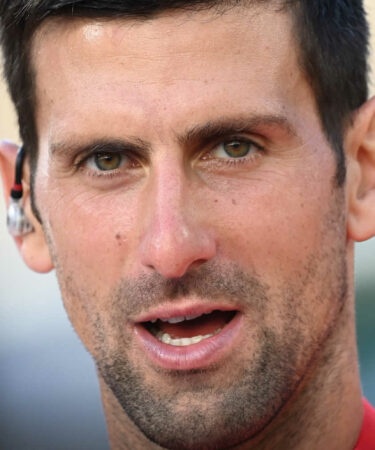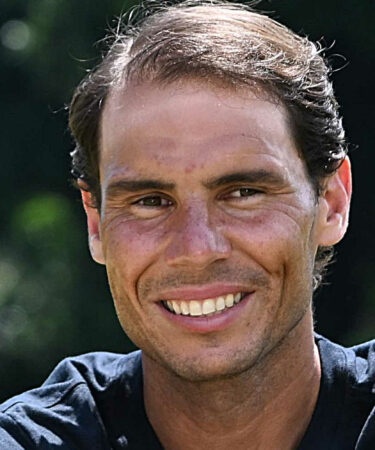Djokovic: “I didn’t have the formula of success against Nadal and Federer”
“I knew if I figure out the way to beat these guys in the big matches, I would kind of solve the riddle of Grand Slam for me”
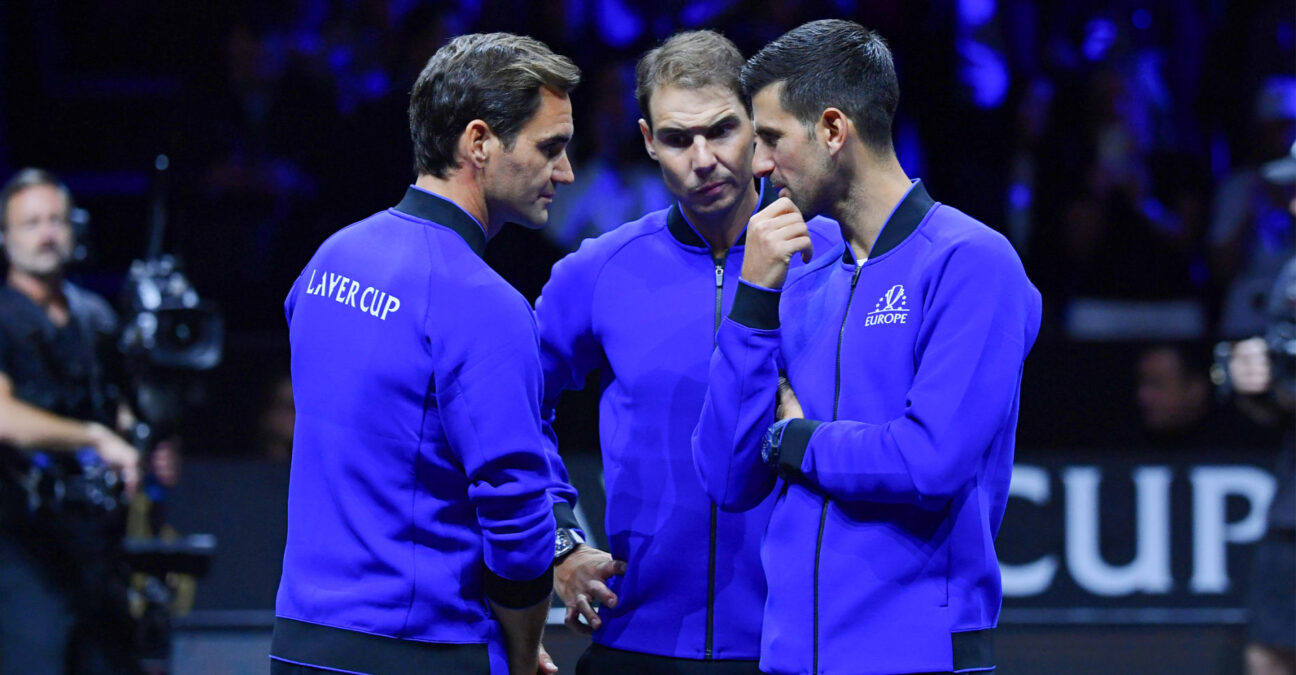 Antoine Couvercelle / Panoramic
Antoine Couvercelle / Panoramic
Novak Djokovic‘s arrival on the ATP Tour in the mid-2000s can be best described as the disruption of Roger Federer and Rafael Nadal‘s see-saw ride.
On their way to unprecedented greatness, Federer and Nadal faced obstruction from Djokovic, who not only restricted them from owning shedloads of tennis records but overhauled them despite.
The Serbian surmounted the Swiss 27 times in 50 meetings and the Spaniard 31 times in 60. Considered the third musketeer among the Big Three, he stands the tallest with 24 Grand Slam trophies and 428 weeks as the world No 1 against Federer’s 20 and 310, and Nadal’s 22 and 209, respectively.
“I see it as one of the greatest rivalries definitely in all the sports and I’m very proud and honoured to be part of this group,” Djokovic told LA NACION. “And I was saying this a lot because they’re older than me, Rafa is older one year and Roger six years. So, they have definitely been, in terms of the rivals, in terms of other players, the biggest influence on my game, on my development as a professional tennis player.”
Federer and Nadal, however, weren’t the forces that fuelled Djokovic’s dreams to begin with. That changed soon after he tasted his first glory at the Australian Open in 2008.
“My childhood dream was to win Wimbledon and be No 1 in the world,” the Serb added. “I achieved those dreams in 2011 in Wimbledon. But my first Grand Slam came in 2008 in Australian Open. And that was the first time after I won it that I really believed that, ‘Okay, now I know that I can win Grand Slams and achieve my potential.’ That really opened the door for me like this and I felt like ‘Okay, I’m capable of doing this, now let’s continue going forward.’”
The 24-time Grand Slam champion, however, failed to add another Major success to his name in the following two years despite bending over backward — losing against the Spaniard in the French Open semi-finals in 2008 and the US Open final in 2010 and to the Swiss in the final four in New York twice in 2008 and 2009.
“When I was starting to be a contender for Grand Slams and be on that highest level of professional tennis. I won by first Grand Slam in 2008 but the next one I won in 2011, so three years I waited to win another Slam and I was No 3 in the world all these three years and No 2 also in 2009. I was playing on a high level but I could not win Grand Slams because of these two guys [Federer and Nadal], they were so dominant.
I didn’t have the solution or formula of success against them at that time.”
Novak Djokovic
“I could win maybe one or two matches here and there but big matches, I was not winning. So these three years have been really crucial for my development. It made me even more hungry to particularly win against the two of them.”
The Serbian succeeded in his goals in 2011, triumphing in Melbourne again with a victory over Federer in the semis. In the following months, he dethroned Nadal in the London and New York finals that year.
“I knew if I, of course, continue my general growth as a player, but if I figure out the way to beat these guys in the big matches and I knew that a lot of it comes from here (head), that I would kind of solve the riddle of Grand Slam for me. I would win more Grand Slams and that’s what happened.”
Djokovic beat Federer and Nadal in their final meetings
Federer hung up his racquet in September 2022 after suffering 11 losses to Djokovic in their 17 Grand Slam matches, with the Serbian having the last laugh in the 2020 Australian Open semi-finals.
Reflecting on the Swiss’ impact on his career in the interview, Djokovic added:
“When Roger said goodbye to tennis a few years ago, it was, we all expected that moment to come because he’s older than me and Rafa, we knew that he’s not going to play forever. Seeing him say goodbye was also like a part of me and Rafa went as well with him. I was kind of hearing people say, ‘Ah you might feel dead’ but I was like ‘Eh, I don’t know’, but when I was there, that actually happened, he said goodbye, I was like wow, this touched me as well.”
Nadal’s fast-approaching departure in November this year might overwhelm Djokovic with similar emotions. Notably, the two have already played their final official battle, with the second-round clash at the Paris Olympics going the Serbian’s way.
The duo will, however, have the last dance in an exhibition match at the Six Kings Slam on Saturday (October 19).
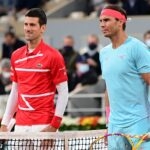
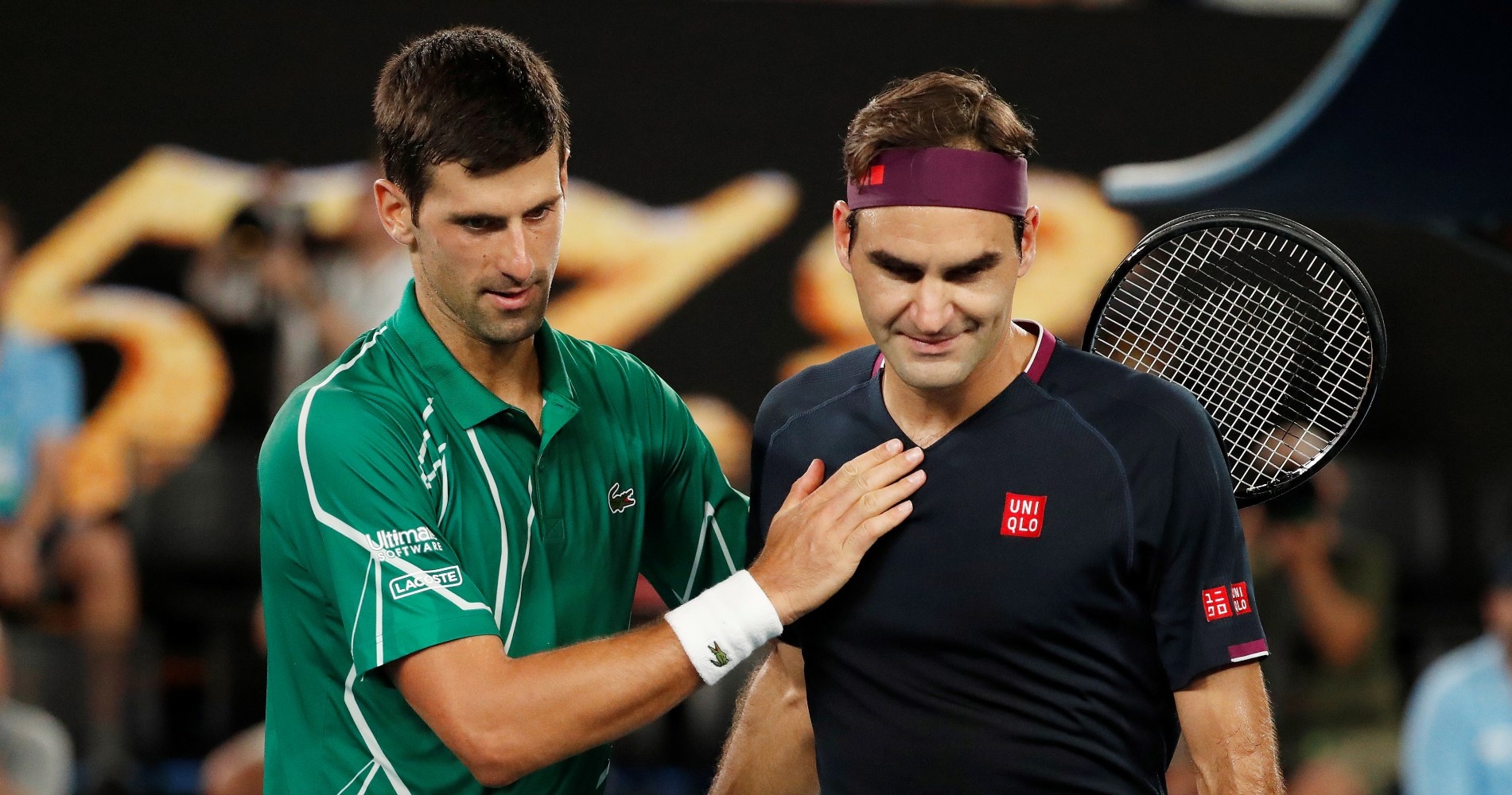
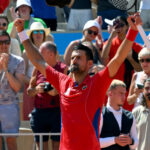
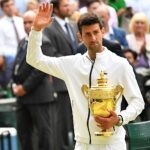
People in this post
More tennis news
Rio Open: Lucky Loser Ugo Carabelli makes semi-finals

“I’m a different player” – Draper relishes chance to face nemesis Rublev again in Doha final

Rio Open: Baez reaches semi-finals
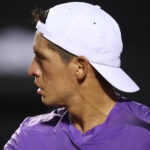
Teen prodigy, Russia, Murray, Olympic medallist: Everything you always wanted to know about Mirra Andreeva (but never had time to find out) – updated after reaching 2025 Dubai final
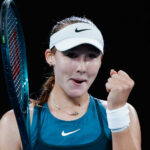
Andreeva finding the secret to success: “When I don’t think…it’s the best way I can play”
